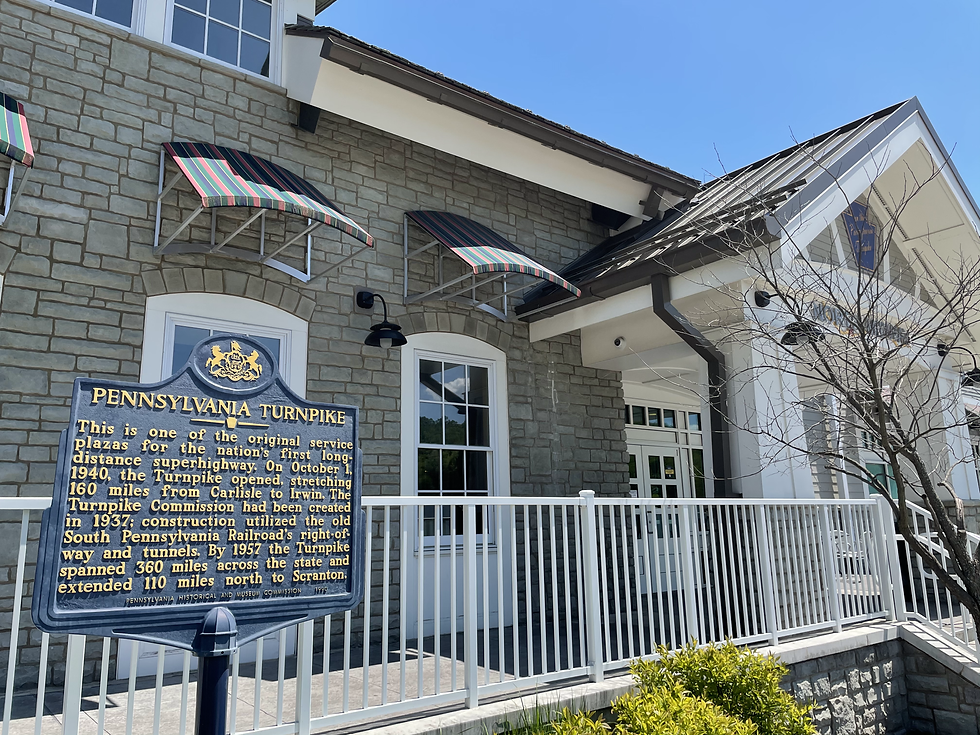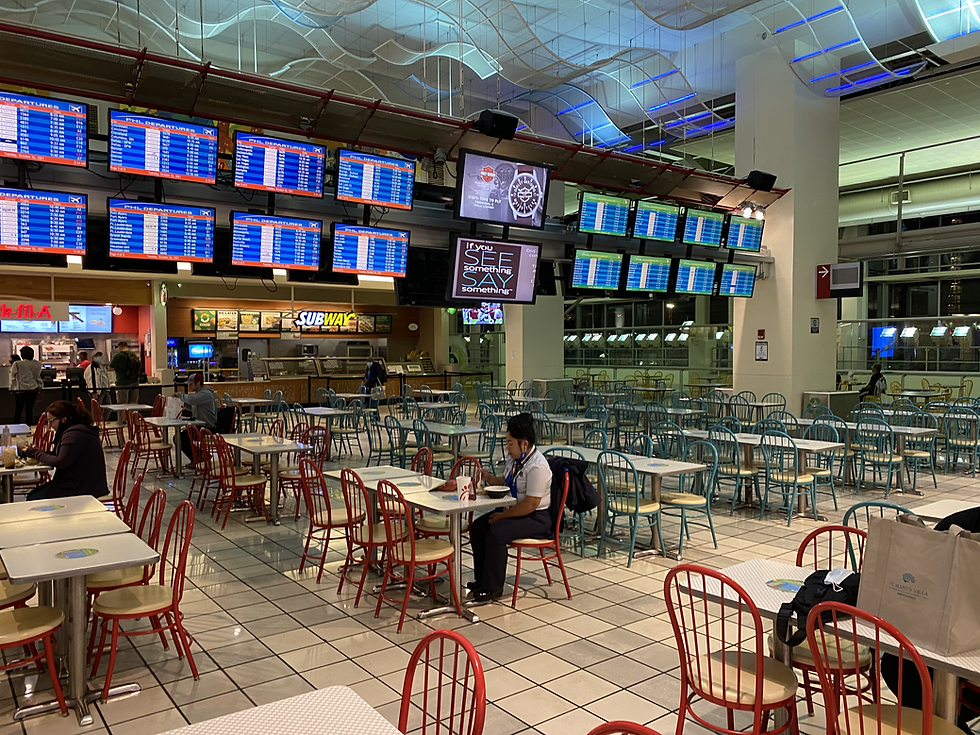Dear Secretary Pete: Let's Meet to Reimagine Equitable Infrastructure
- Jon Bari
- Oct 30, 2021
- 5 min read
Updated: Mar 8, 2022
Text of Jax's Letter to Transportation Secretary Pete Buttigieg, September 16, 2021
Dear Secretary Pete,
When I turned 8 in March, I wished for a cure for Celiac Disease and the 3 million Americans with Celiac. Eating without fear is our hope. Food insecurity happens everyday for Celiacs like me, especially when we travel. There is little to no safe Gluten Free food served on airplanes, at airports and at highway rest stops. That's like not having an ADA bathroom. Let's meet so I can help you reimagine equitable infrastructure. Thank you.
Sincerely,
Jax Bari
Background Up until August 2018 when Jax was diagnosed with Celiac Disease (just before starting Kindergarten), we took our food freedom for granted. We enjoyed our food privilege with the spontaneity of food whereby we could eat whatever and wherever we wanted, including when we traveled (i.e., fast food in the airport terminal).
Now, as parents of a child with Celiac Disease, our entire family has embraced its new normal. We are working to foster greater understanding and inclusion of those who suffer from Celiac Disease and food allergies in life's daily activities that involve food, especially at school and while traveling away from home. We have had numerous experiences with the food deserts on planes, at airports, at highway rest stops, etc.

A Day in the Life - Transportation Food Deserts
Jax wants to share a day in the life from a travel perspective so Secretary Pete can help those with food allergies and intolerances.
Imagine leaving your hotel in Colorado at 5:30AM, traveling by car to Denver for more than 125 miles, arriving at Denver International Airport (DIA) and not finding any safe Gluten Free food options. Then imagine having your flight delayed which caused you to miss your connecting flight in Dallas. Then, upon arriving at Dallas Fort Worth International Airport (DFW), there is no safe Gluten Free food to be found throughout the terminals (plural). Keep in mind that all the while, your airline has not served safe Gluten Free food in flight, even when you tried to order it in advance, and even if you flew First Class.
15+ hours after leaving your hotel in Colorado, you arrive at Philadelphia International Airport (PHL), again to find no safe Gluten Free food options. Imagine someone not being able to use the restroom for 15+ hours since there was not an ADA accessible bathroom. That is just not acceptable or humane.

For an entire day and across three meals, three states and three time zones, you cannot feed your child anything except a protein bar and a bag of chips that you packed in advance or luckily found at the airport. You cannot even find chocolate milk that is labeled Gluten Free at any of the airport vendors or restaurants.
The rest of the family also cannot practically eat because how would that make your child feel watching his parents and sister have a meal, while there is no safe Gluten Free meal available for him.
Unfortunately, this scenario is the everyday travel life for millions of Americans with food allergies and intolerances. It provides for an anxiety filled travel experience of food insecurity that is the everyday life of any Celiac patient, no matter a person's age or socio-economic status, because of the constant threat of cross contact with Gluten, 80% of foods have Gluten in them, the limited availability of Gluten Free food (especially when travelling), the high price of Gluten Free foods, and moreover, Gluten is not required to be labeled on packaged food products or on menus.
We hope that Secretary Pete will meet with Jax in Washington, D.C. or Philadelphia so Jax can personally share his lived experience to help Secretary Pete reimagine equitable infrastructure. Jax loves taking Amtrak, just like President Biden, so he would love to come to DC.
"When airports and highways are paid for with tax dollars, there should be reasonable food service accommodations made at those facilities for people with disabilities including Celiac Disease. Just like an ADA bathroom is a requirement at airports and rest stops, we must reimagine the provision of safe and inclusive food service options to ensure that there is health equity with the human right to adequate food for those with food allergies and intolerances." Jon Bari
Pennsylvania Department of Transportation & Pennsylvania Turnpike Commission
When Jax was honored in September 2021 by the Pennsylvania State Senate in Harrisburg, Pennsylvania State Senator Amanda Cappelletti's office had reached out to Pennsylvania Department of Transportation (PENNDOT) Secretary Yassmin Gramian, PE to request a meeting for Jax to discuss equitable infrastructure, including the lack of accommodations of safe Gluten Free food available at rest stops along the Pennsylvania Turnpike. Secretary Gramian serves as a Commissioner of the Pennsylvania Turnpike.
In response to a meeting request by an 8 year old who is trying to navigate a Gluten filled world on a medically required Gluten Free diet, Secretary Gramian's office responded, "The [Pennsylvania Transportation] Department has no control over what Turnpike vendors provide but that your concerns would be shared with staff who work with those vendors for their consideration." The response suggests that it is from someone who has a food privilege (as we did prior to Jax getting diagnosed with Celiac), and one for which PENNDOT needs more education about Celiac Disease and food allergies and how these conditions are recognized disabilities under the ADA that can and should be reasonably accommodated. While I do claim to understand or know details about contracting with Turnpike or airport food service vendors, it stands to reason that there are provisions in contracting that give PENNDOT some control and leverage over the actions of its food service vendors on a variety of operational issues (i.e., EEOC, compensation of employees, operating hours, compliance with Federal and State laws such as the ADA, etc.). For facilities that are built and maintained with State and Federal tax dollars, we need government authorities such as PENNDOT to be more accountable and proactive in providing health equity and social justice to marginalized groups such as those with food allergies and intolerances who should be able to fully use PENNDOT's rest stops in a comparable manner to those without food allergies and intolerances. Imagine if you will that PENNDOT said that it could not control whether there were ADA bathrooms at taxpayer funded rest stops along taxpayer funded turnpikes. That would be unimaginable and inhumane today.
However, unfortunately as recently as 1990, many highway rest stops and airports did not have wheelchair ramps, curb cuts or ADA compliant rest rooms since it was not until July 26, 1990 that President George H. W. Bush signed the Americans with Disabilities Act into law which required such accommodations.
As Dr. Martin Luther King said, “Human progress is neither automatic nor inevitable. Even a superficial look at history reveals that no social advance rolls in on the wheels inevitability. Every step towards the goal of justice requires sacrifice, suffering, and struggle; the tireless exertions and passionate concern of dedicated individuals.”
It's time to for the Federal government to reimagine equitable infrastructure again for those who travel and have food allergies and intolerances including Celiac Disease.
Resources
